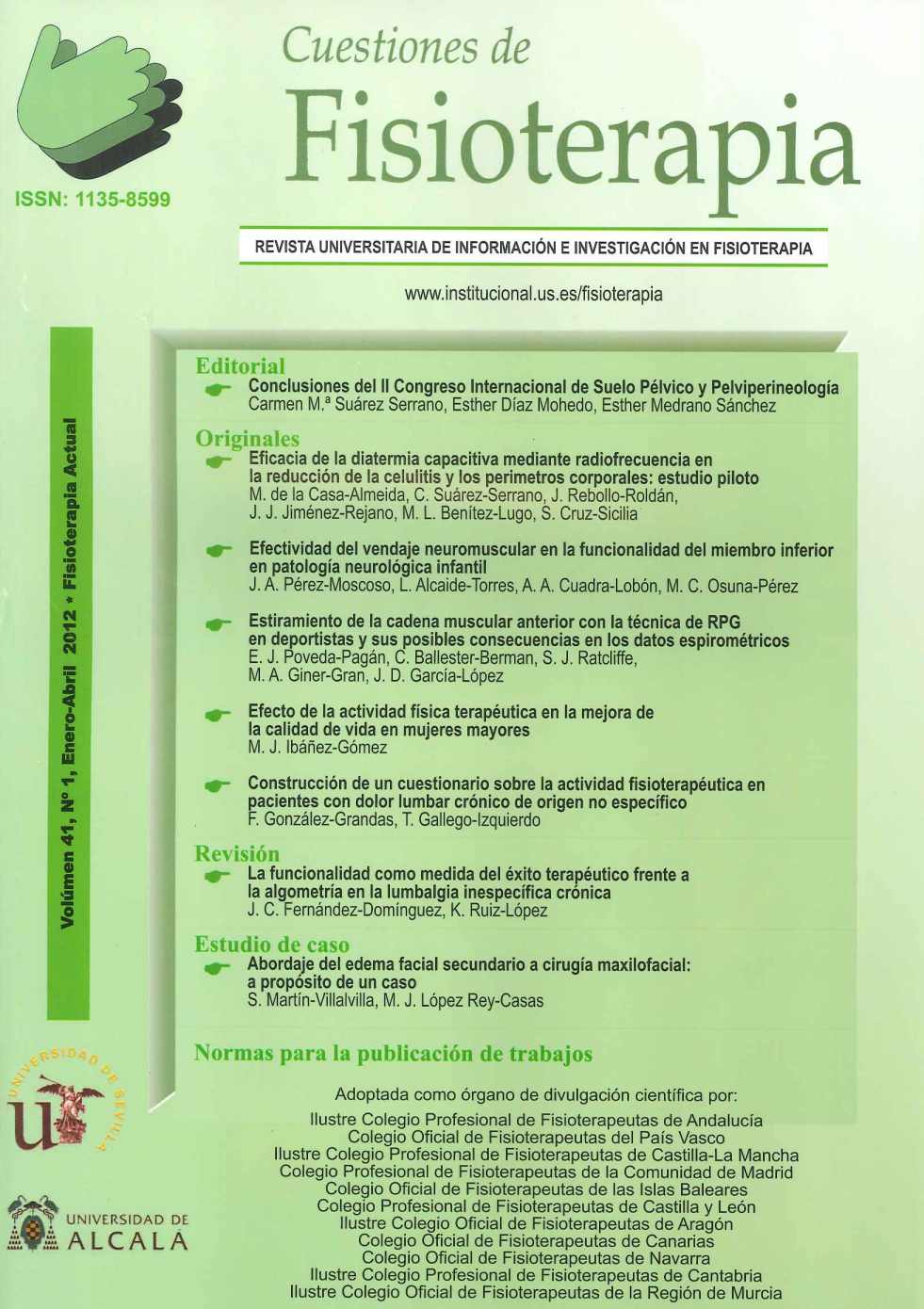Articles
Year 2019, Volume 48, Issue 2
Evaluation with accelerometers of the increase in postural control and balance of a girl with cerebral palsy who receives hippotherapy
Abstract
Introduction: the assessment of postural control is important to guide therapeutic interventions in people with cerebral palsy. It has been shown that accelerometry is useful for the assessment of postural stability. The aim of this study is to verify the effect of hippotherapy on postural stability and balance in the case study of a girl with cerebral palsy, with the use of accelerometers placed in the pelvis of the subject and the horse's rump by titration of five minutes on the horse at walk. Material and method: the hippotherapy program was 14 sessions, once a week for 45 minutes. The assessment was performed before and after treatment. Results: modifications of postural stability indicators that suggest improvement post-intervention. Conclusion: accelerometry may be a useful tool for assessment in children with motor disorders, and specifically in cerebral palsy
Keywords: accelerometry, postural balance, equine-assisted therapy, cerebral palsy.

